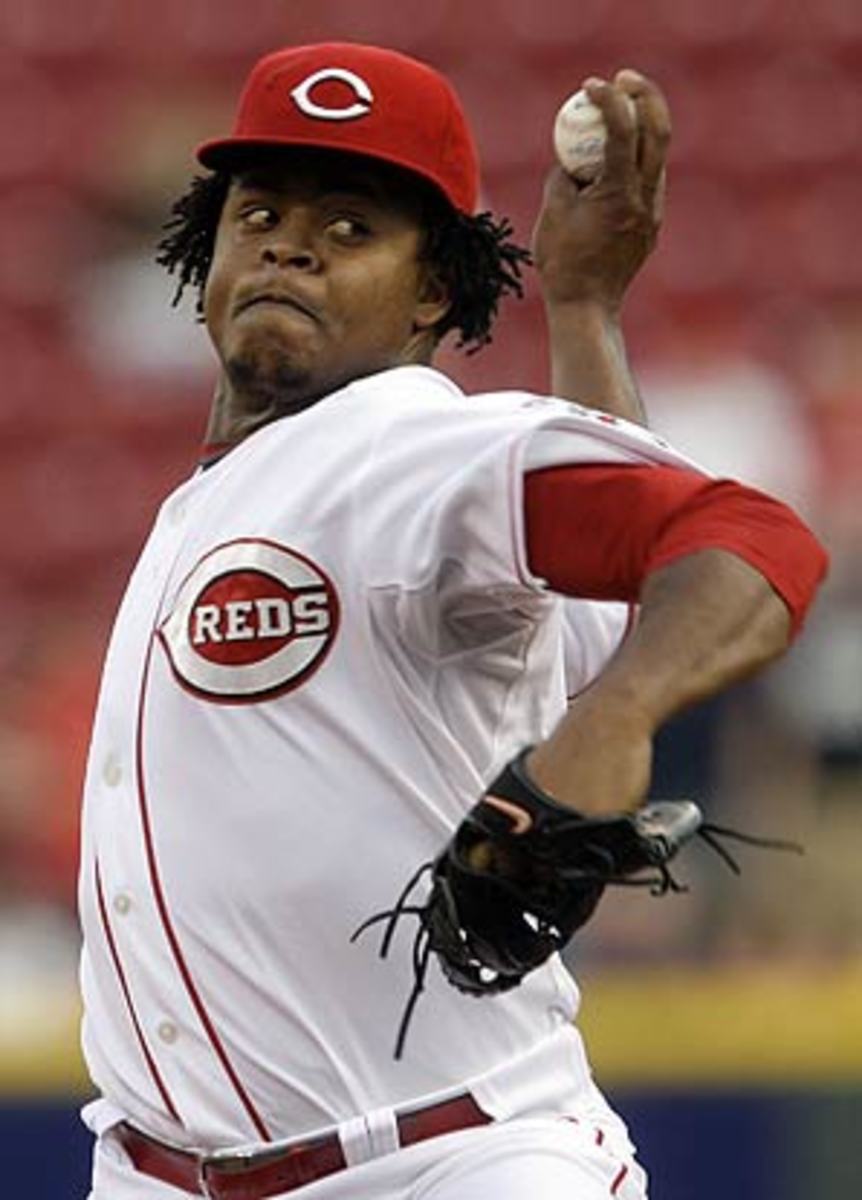
Volquez case highlights problems with baseball's drug punishments
1) Drugs are bad and users should be punished -- unless you're hurt, in which case you've already suffered enough.
2) Teams don't have accountability for their banned players.
Some background on the first point: Volquez, who is on the 60-day disabled list as he rehabs from Tommy John surgery last summer, is not expected to be ready to pitch until late July. His 50-game suspension is effective Wednesday, which means the entirety of it will have elapsed by the time he takes the mound. He will still lose $137,345.68 -- 50 games' worth of pay on his $445,000 salary this season -- but not have to sit out any games he wasn't already expected to miss.
Volquez -- who released a statement saying he inadvertently took a banned fertility drug so that he and his wife could start a family -- is not the first player to serve his suspension while on the DL; both the Yankees' Sergio Mitre and the Rockies' Rafael Betancourt are among those who have previously done so. The question facing MLB is why a player is allowed to serve his suspension while on the disabled list and the answer, one MLB official indicated, is that the league does not want to be involved with making medical determinations of who is fit to play and who isn't.
In fact, there is no provision in the collective bargaining agreement's joint drug agreement that explicitly accounts for players who fail a test while on the disabled list during the regular season.
Coincidentally, news also came down Tuesday that the five-game suspension of Mariners starter Cliff Lee for throwing over the head of the Diamondbacks' Chris Snyder in spring training was overturned. That ban was set to begin when Lee was activated from the 15-day disabled list.
There's a contradiction there, that one suspension (Volquez's) can be served concurrently with time on the disabled list, while another (Lee's) would only have started would only start when he was healthy.
In other words, length of suspensions aside, on-field misconduct is still viewed in some ways as a more serious offense than off-field cheating.
Losing 31 percent of one's pay is no small matter, especially to a player like Volquez, who doesn't have a multi-million dollar contract, and recovering from Tommy John surgery is a wholly unpleasant experience in its own right. But the significance of the penalty is drastically diminished if Volquez is not forced to sit out when he's healthy and otherwise would have been in uniform.
So if you're an injured player with a long road to recovery (i.e. at least 50 games), there's less at stake to try and use a banned supplement to get back to action.
The second point, that teams don't have accountability for their injured players, is not a criticism so much as it is an observation about a value judgment Major League Baseball has made. Because Volquez can serve his suspension while remaining on the 60-day DL, the Reds do not lose a roster spot the way the Mariners would have lost one had Lee's suspension not been overturned, as Lee would have had to be activated from the 15-day DL before his five-game suspension would have counted.
Not only is there no penalty for the Reds, as they don't lose Volquez's services any more than they already had because of his injury, they even get to save a bit of money on payroll.
Of course, this is nothing new. In watching Manny Ramirez play a week of minor-league games while preparing to return from his 50-game suspension last year, it became apparent that the collective bargaining agreement allows banned players to return to their big-league clubs in near-peak condition. The Dodgers were even able to replace Ramirez on the active roster for the games he missed.
Clubs can only govern so closely the substances that their players take -- particularly since Volquez's statement indicated that he tested positive when he first reported to spring training, meaning the violation occurred in the offseason -- so this is likely how it should be, but it's worth noting how plainly the Volquez news reinforced this point.
So how about this as an ending to the story? Volquez, upon receiving medical clearance and not a day later, returns to action for the Reds' stretch run of the season. He will likely tally enough service time at the end of the season to become arbitration-eligible for the first time next offseason. Now suppose Volquez pitches exceedingly well after he returns to Cincinnati's rotation. He'll be due for a raise. How about the Reds offer him an increase of $137,345.68? No harm, no foul. After all, he was injured.




